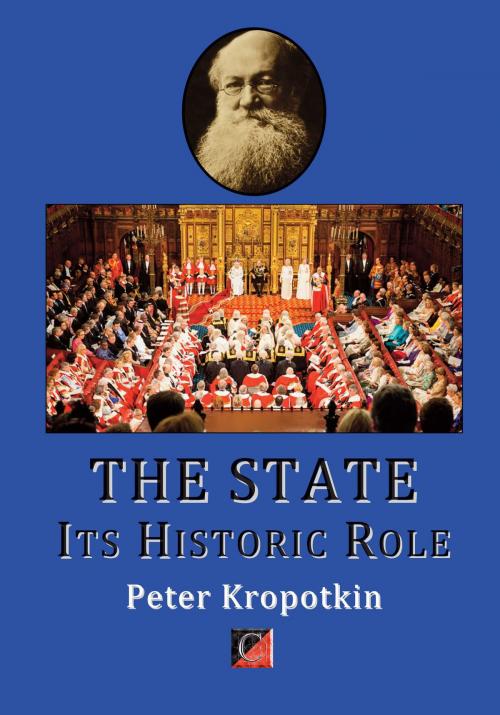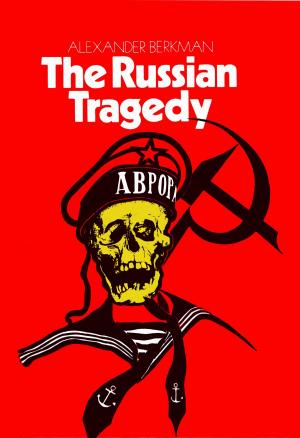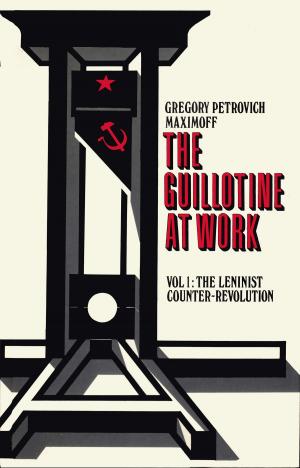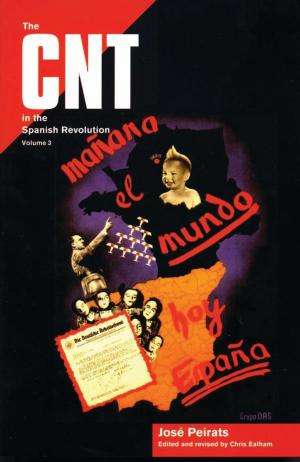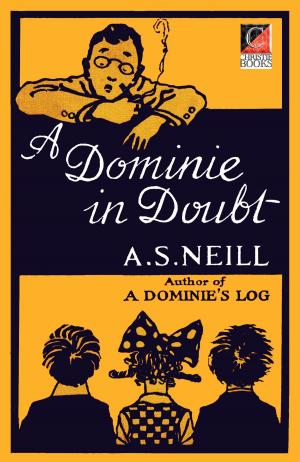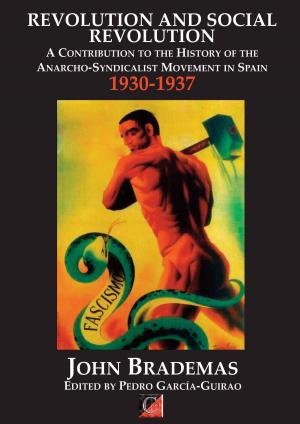| Author: | Peter Kropotkin | ISBN: | 1230000782586 |
| Publisher: | ChristieBooks | Publication: | November 18, 2015 |
| Imprint: | ChristieBooks | Language: | English |
| Author: | Peter Kropotkin |
| ISBN: | 1230000782586 |
| Publisher: | ChristieBooks |
| Publication: | November 18, 2015 |
| Imprint: | ChristieBooks |
| Language: | English |
“…Kropotkin’s brilliant, erudite, provocative lecture needs no formal introduction from a latter-day translator. And one assumes that the reader is prepared to make the necessary time adjustment and allowances for ‘contemporary’ references that are no longer contemporary but still interesting and relevant to our time; and for forecasts that have alas been proved over-optimistic; possibly too for Kropotkin’s undue enthusiasm for an historic past the glories of which are sometimes given more emphasis than are its less attractive aspects.
Some readers may also question the value of detailed knowledge of the distant past for those who are seeking in the present, even modestly, to influence by direct action the future. For if we believe that Man makes history and not that Man is determined by history then it should be sufficient to know what one wants to change in society and that there are also enough people prepared to act to bring about those changes, for the social revolution to take place.
When the above paragraph was written for the 1969 edition I asked: “There surely must be a flaw in this argument in view of the fact that in 1969 Marxist determinism is at its lowest ebb; the State is on the one hand discredited by the Left and the Right yet on the other assumes more and more functions (good and bad) partly because it is assumed by Left and Right that it is the State’s function to do so! I think there is no flaw in the classical anarchist argument as expressed by Kropotkin in the concluding sections of this lecture, and the young ‘anarcho-Maoists’, and their ‘anarcho-Che-Guevarist’ contemporaries will probably learn more from Kropotkin’s interpretation of social history than from the brothers Cohn-Bendit’s Obsolete Communism (Deutsch, London 1968), however much one welcomes with open arms the advent of ‘Danny le Rouge’ and his generation.”*
How far away May 1968 now seems politically in a 1986 when from Thatcher to Reagan, from Chirac to Kohl, Western politics is dominated by a Rightist laissez faire philosophy which exalts ‘individual initiative’ and decries ‘State interference’; when that pillar of the State — the Church — is now in many parts of the world in open rebellion against government; and not all the Judiciary is as accommodating as at present in this country where it ignores police excesses and implements with enthusiasm the government’s campaign to destroy Trades Unionism.
For Kropotkin “the State idea means something quite different from the idea of government” and those who think otherwise are “confusing” the two concepts. One eminent anarchist thinker who did just this was Malatesta who in his essay Anarchy, first published in 1891 [Anarchy by E. Malatesta in a new translation, Freedom Press, 1974], a few years before Kropotkin’s The State, has this to say on the subject:
Anarchists, including this writer, have used the word State, and still do, to mean the sum total of the political, legislative, judiciary, military and financial institutions through which the management of their own affairs, the control over their personal behavior, the responsibility for their personal safety, are taken away from the people and entrusted to others who, by usurpation or delegation, are vested with the powers to make the laws for everything and everybody, and to oblige the people to observe them, if need be, by the use of collective force.
In this sense the word State means government, or to put it another way, it is the impersonal, abstract expression of that state of affairs, personified by government: and therefore the term abolition of the State, Society without the State, etc., describe exactly the concept which anarchists seek to express of the destruction of all political order based on authority.
It would seem that Malatesta’s definition corresponds more closely to the contemporary situation. This writer would even venture the opinion that effective government is no longer in the hands of the politicians but with the multi-nationals, the banks, insurance companies and pension funds (compare the power of the Chancellor of the Exchequer juggling with a few billion in his annual budget with that of the London market’s daily turnover of 60 billion dollars!). And what of the recent Big Bang at the Stock Exchange and the technological explosion which pursues its ruthless path first to dehumanizing work and life and eventually to the annihilation of humanity. We may even live to see a privatized para-military police force controlled by this new ‘State’. Perhaps...but we can only echo Kropotkin’s final words to his lecture: “the choice lies with us!”.
— Vernon Richards, 1986
“…Kropotkin’s brilliant, erudite, provocative lecture needs no formal introduction from a latter-day translator. And one assumes that the reader is prepared to make the necessary time adjustment and allowances for ‘contemporary’ references that are no longer contemporary but still interesting and relevant to our time; and for forecasts that have alas been proved over-optimistic; possibly too for Kropotkin’s undue enthusiasm for an historic past the glories of which are sometimes given more emphasis than are its less attractive aspects.
Some readers may also question the value of detailed knowledge of the distant past for those who are seeking in the present, even modestly, to influence by direct action the future. For if we believe that Man makes history and not that Man is determined by history then it should be sufficient to know what one wants to change in society and that there are also enough people prepared to act to bring about those changes, for the social revolution to take place.
When the above paragraph was written for the 1969 edition I asked: “There surely must be a flaw in this argument in view of the fact that in 1969 Marxist determinism is at its lowest ebb; the State is on the one hand discredited by the Left and the Right yet on the other assumes more and more functions (good and bad) partly because it is assumed by Left and Right that it is the State’s function to do so! I think there is no flaw in the classical anarchist argument as expressed by Kropotkin in the concluding sections of this lecture, and the young ‘anarcho-Maoists’, and their ‘anarcho-Che-Guevarist’ contemporaries will probably learn more from Kropotkin’s interpretation of social history than from the brothers Cohn-Bendit’s Obsolete Communism (Deutsch, London 1968), however much one welcomes with open arms the advent of ‘Danny le Rouge’ and his generation.”*
How far away May 1968 now seems politically in a 1986 when from Thatcher to Reagan, from Chirac to Kohl, Western politics is dominated by a Rightist laissez faire philosophy which exalts ‘individual initiative’ and decries ‘State interference’; when that pillar of the State — the Church — is now in many parts of the world in open rebellion against government; and not all the Judiciary is as accommodating as at present in this country where it ignores police excesses and implements with enthusiasm the government’s campaign to destroy Trades Unionism.
For Kropotkin “the State idea means something quite different from the idea of government” and those who think otherwise are “confusing” the two concepts. One eminent anarchist thinker who did just this was Malatesta who in his essay Anarchy, first published in 1891 [Anarchy by E. Malatesta in a new translation, Freedom Press, 1974], a few years before Kropotkin’s The State, has this to say on the subject:
Anarchists, including this writer, have used the word State, and still do, to mean the sum total of the political, legislative, judiciary, military and financial institutions through which the management of their own affairs, the control over their personal behavior, the responsibility for their personal safety, are taken away from the people and entrusted to others who, by usurpation or delegation, are vested with the powers to make the laws for everything and everybody, and to oblige the people to observe them, if need be, by the use of collective force.
In this sense the word State means government, or to put it another way, it is the impersonal, abstract expression of that state of affairs, personified by government: and therefore the term abolition of the State, Society without the State, etc., describe exactly the concept which anarchists seek to express of the destruction of all political order based on authority.
It would seem that Malatesta’s definition corresponds more closely to the contemporary situation. This writer would even venture the opinion that effective government is no longer in the hands of the politicians but with the multi-nationals, the banks, insurance companies and pension funds (compare the power of the Chancellor of the Exchequer juggling with a few billion in his annual budget with that of the London market’s daily turnover of 60 billion dollars!). And what of the recent Big Bang at the Stock Exchange and the technological explosion which pursues its ruthless path first to dehumanizing work and life and eventually to the annihilation of humanity. We may even live to see a privatized para-military police force controlled by this new ‘State’. Perhaps...but we can only echo Kropotkin’s final words to his lecture: “the choice lies with us!”.
— Vernon Richards, 1986
